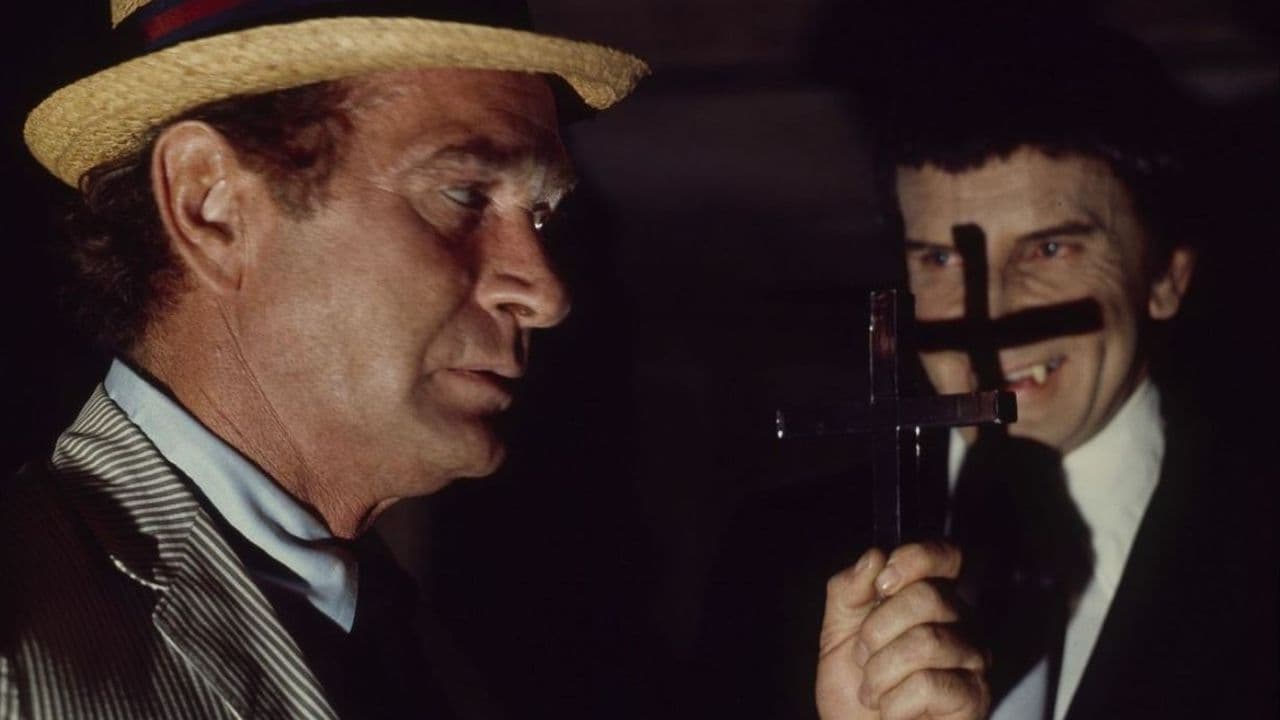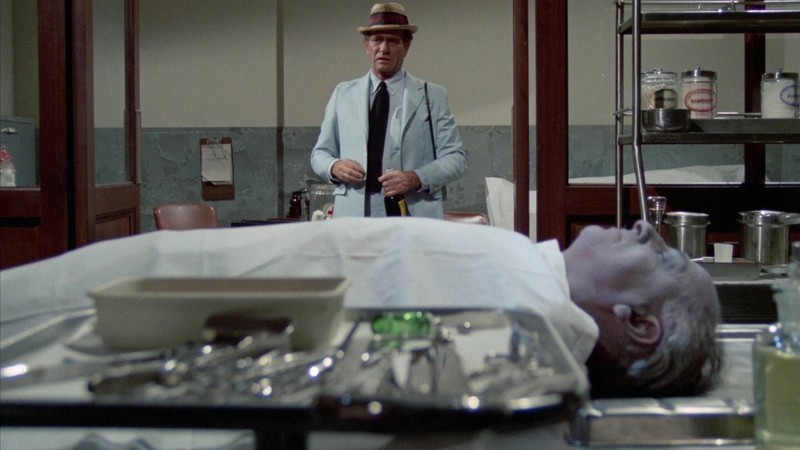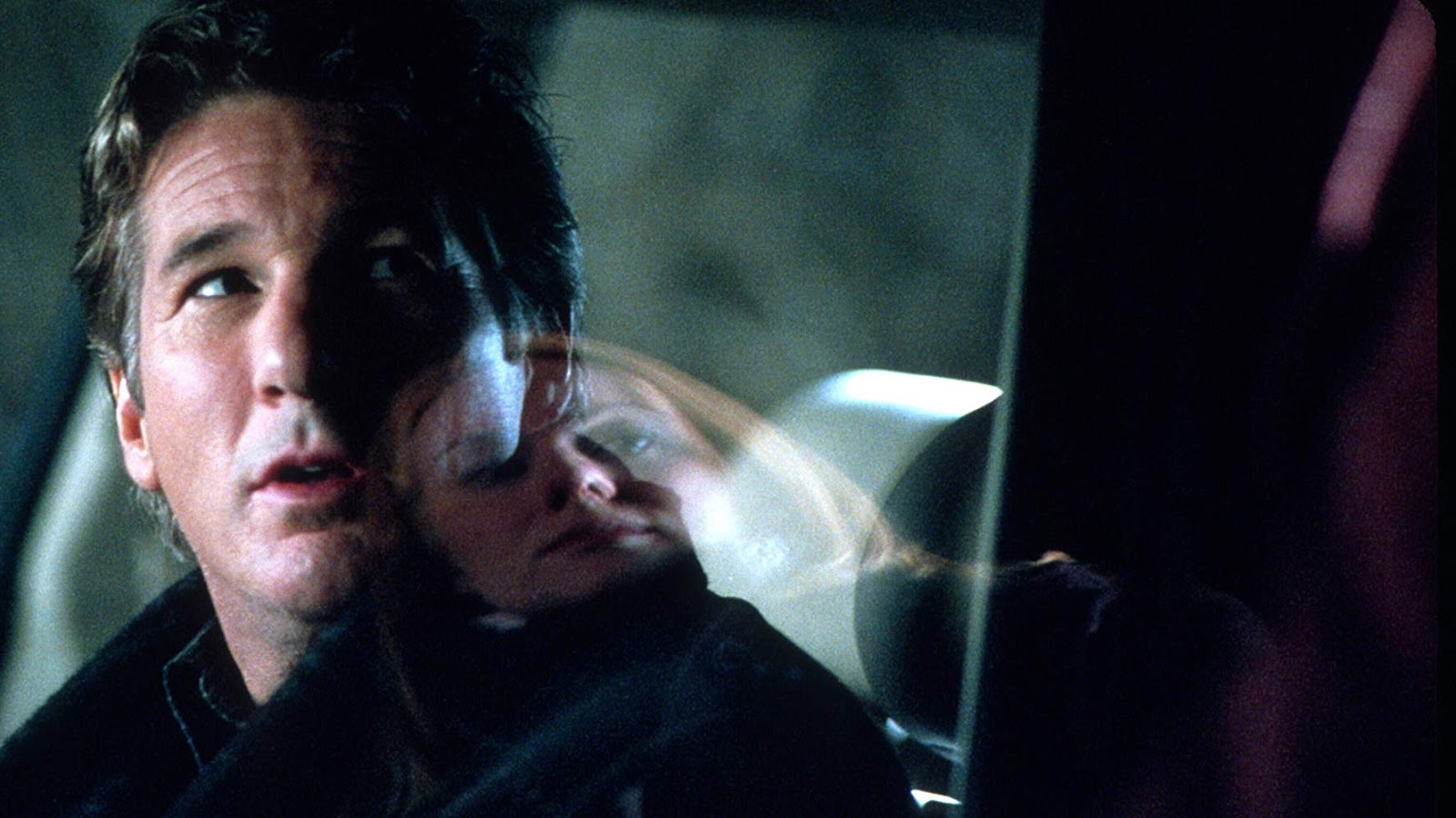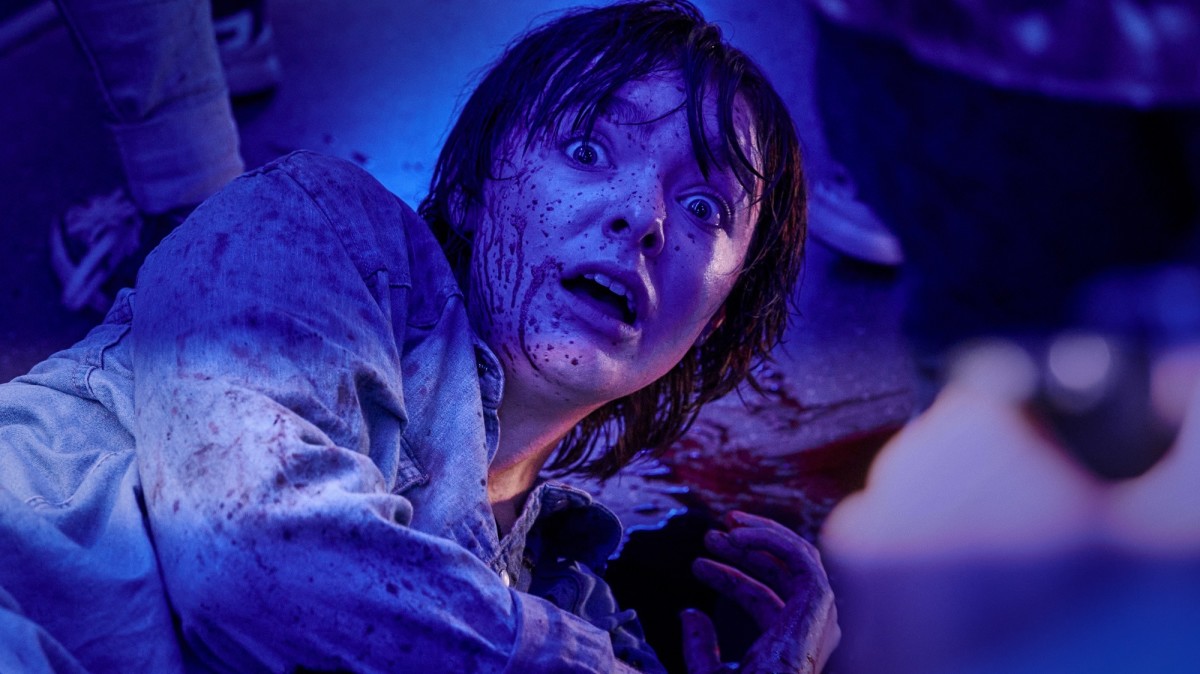Re: Halloween Horror Marathon 2022
Posted: Fri Oct 21, 2022 9:00 pm
-The Night Stalker (1972): 6/10
-The Night Strangler (1973): 6.5/10


A pair of early-1970s made-for-TV movies that anticipated a television sensation of the 90s. 1972's The Night Stalker stars Darren McGavin as Carl Kolchak, a lackadaisical reporter (always clad in his trademark straw fedora) who chances upon a major scoop when young, attractive women start turning up dead on the Vegas Strip, with savage bite marks on their necks and bodies drained of blood...blood that's nowhere to be found at the crime scenes. Yep, a vampire (Barry Atwater) is loose in Sin City, and it's up to Kolchak to convince the police of the danger and - if he cannot - man up and put an end to his sanguinary reign of terror himself.
Produced by Dark Shadows creator Dan Curtis and scripted by Richard Matheson (from an unpublished story by Jeff Rice), The Night Stalker is well-produced by the standards of telefilms of the early 70s, and McGavin makes for a likably rumpled protagonist, but it's pretty tame by today's standards (some great vintage Las Vegas location footage, though). But it was impressive enough in its day to become a ratings smash, and a quickie sequel, the following year's The Night Strangler. Kolchak was run out of town at the end of the previous movie, the police and mayor wanting nothing to do with the publication of his wild supernatural tale, and now he's working a new journalistic gig in Seattle, Washington, where a new series of murders of young women starts up, this time the work of a man (Richard Anderson) who has created a serum that will keep him eternally young...provided he can kill six women every 21 years to procure the blood needed for a fresh batch.
In some ways more enjoyable than the first (and another great early-70s time capsule of Seattle), yet a ridgid narrative formula had already been set in stone, and would get run into the ground in the short-lived television series Kolchak: The Night Stalker, which would run for a single season in 1974-75 before vanishing from the airwaves...but not before offering a major inspiration for a young Chris Carter, who would use the show as a springboard for the creation of his 1990s ratings favorite The X-Files (The Night Strangler, in particular, would essentially get remade as the season-one episode "Squeeze"). neither film is especially great, but both offer up nostalgically cheesy early-70s TV atmosphere, and McGavin gives the proceedings a nicely world-weary edge.
-The Mothman Prophecies (2002): 9/10

Underrated supernatural creeper about John Klein (Richard Gere), a reporter for the Washington post whose younger wife Mary (Debra Messing) catches a glimpse of a red-eyed, winged figure during a nighttime drive and gets into a nasty crack-up...one that reveals an inoperable tumor in her brain. She dies, leaving John bereaved, and two years later, on a jaunt from D.C. to Richmond, Virginia on an assignment, he inexplicably finds himself in Point Pleasant, West Virginia, hundreds of miles off-course. John has no idea how he got there, nor why, when his car breaks down in the middle of the night and he knocks on the door of a nearby farmhouse for assistance, the man inside, Gordon Smallwood (Will Patton), pulls a shotgun on him, claiming that John has shown up on his forch in the wee hours for the last two nights in a row. Local police officer Connie Mills (Laura Linney, decked out in Frances McDormand Fargo garb) arrives to defuse the situation, and John finds himself embroiled in a mystery that has been sweeping the town in recent months, sightings of a mysterious "Mothman" who eyewitness testimony reveals to resemble the sketchy drawings his late wife scribbled obsessively in a notebook in the weeks leading to her death. Now fully invested in the strange events, John elicits to hang around, even as he starts to receive mysterious calls from "Indrid Cold", and starts seeing portents and omens of encroaching disaster. Are these authentic precognitive flashes, and can John decipher the array of clues and prevent some grave tragedy from coming?
Directed by Mark Pellington, and scripted by Richard Hatem from a novel by John Keel (one inspired by true-life events that occured in Point Pleasant in the late 1960s), The Mothman Prophecies is a movie that has little in terms of overt scares or violence, and yet its suffused with a directionless sense of mounting dread that's hard to describe, yet remarkable to experience. Utilizing hovering, voyeuristic camerawork, dense sound design and a score by "Tomandandy", director Pellington (who also provides the droning, processed voice of "Indrid Cold") generates a haunting, compelling mood, one enlivened by the skillful performances. of the entire cast. Gere has rarely been better, carefully charting his character's gradual descent from rationality to the brink of madness, and he's nicely matched by his Primal Fear co-star Linney, who wants to keep the inexplicable events around her within the parameters of sanity, but finds it harder and harder. Patton is especially superb as Smallwood, displaying an aching sense of a good man slowly coming unglued under the pressure of strange visions he cannot process or put together in any logical sense. All of the film's puzzle pieces finally snap together in a bravura finale, one that finally gives the visceral jolts absent from the proceeding events while still leaving the audience room to interpret What It All Meant. A really superb supernatural chiller, one that was great twenty years(!) ago and has weathered the past two decades surprisingly well. If you haven't seen it, check it out...you won't regret it.
-The Night Strangler (1973): 6.5/10


A pair of early-1970s made-for-TV movies that anticipated a television sensation of the 90s. 1972's The Night Stalker stars Darren McGavin as Carl Kolchak, a lackadaisical reporter (always clad in his trademark straw fedora) who chances upon a major scoop when young, attractive women start turning up dead on the Vegas Strip, with savage bite marks on their necks and bodies drained of blood...blood that's nowhere to be found at the crime scenes. Yep, a vampire (Barry Atwater) is loose in Sin City, and it's up to Kolchak to convince the police of the danger and - if he cannot - man up and put an end to his sanguinary reign of terror himself.
Produced by Dark Shadows creator Dan Curtis and scripted by Richard Matheson (from an unpublished story by Jeff Rice), The Night Stalker is well-produced by the standards of telefilms of the early 70s, and McGavin makes for a likably rumpled protagonist, but it's pretty tame by today's standards (some great vintage Las Vegas location footage, though). But it was impressive enough in its day to become a ratings smash, and a quickie sequel, the following year's The Night Strangler. Kolchak was run out of town at the end of the previous movie, the police and mayor wanting nothing to do with the publication of his wild supernatural tale, and now he's working a new journalistic gig in Seattle, Washington, where a new series of murders of young women starts up, this time the work of a man (Richard Anderson) who has created a serum that will keep him eternally young...provided he can kill six women every 21 years to procure the blood needed for a fresh batch.
In some ways more enjoyable than the first (and another great early-70s time capsule of Seattle), yet a ridgid narrative formula had already been set in stone, and would get run into the ground in the short-lived television series Kolchak: The Night Stalker, which would run for a single season in 1974-75 before vanishing from the airwaves...but not before offering a major inspiration for a young Chris Carter, who would use the show as a springboard for the creation of his 1990s ratings favorite The X-Files (The Night Strangler, in particular, would essentially get remade as the season-one episode "Squeeze"). neither film is especially great, but both offer up nostalgically cheesy early-70s TV atmosphere, and McGavin gives the proceedings a nicely world-weary edge.
-The Mothman Prophecies (2002): 9/10

Underrated supernatural creeper about John Klein (Richard Gere), a reporter for the Washington post whose younger wife Mary (Debra Messing) catches a glimpse of a red-eyed, winged figure during a nighttime drive and gets into a nasty crack-up...one that reveals an inoperable tumor in her brain. She dies, leaving John bereaved, and two years later, on a jaunt from D.C. to Richmond, Virginia on an assignment, he inexplicably finds himself in Point Pleasant, West Virginia, hundreds of miles off-course. John has no idea how he got there, nor why, when his car breaks down in the middle of the night and he knocks on the door of a nearby farmhouse for assistance, the man inside, Gordon Smallwood (Will Patton), pulls a shotgun on him, claiming that John has shown up on his forch in the wee hours for the last two nights in a row. Local police officer Connie Mills (Laura Linney, decked out in Frances McDormand Fargo garb) arrives to defuse the situation, and John finds himself embroiled in a mystery that has been sweeping the town in recent months, sightings of a mysterious "Mothman" who eyewitness testimony reveals to resemble the sketchy drawings his late wife scribbled obsessively in a notebook in the weeks leading to her death. Now fully invested in the strange events, John elicits to hang around, even as he starts to receive mysterious calls from "Indrid Cold", and starts seeing portents and omens of encroaching disaster. Are these authentic precognitive flashes, and can John decipher the array of clues and prevent some grave tragedy from coming?
Directed by Mark Pellington, and scripted by Richard Hatem from a novel by John Keel (one inspired by true-life events that occured in Point Pleasant in the late 1960s), The Mothman Prophecies is a movie that has little in terms of overt scares or violence, and yet its suffused with a directionless sense of mounting dread that's hard to describe, yet remarkable to experience. Utilizing hovering, voyeuristic camerawork, dense sound design and a score by "Tomandandy", director Pellington (who also provides the droning, processed voice of "Indrid Cold") generates a haunting, compelling mood, one enlivened by the skillful performances. of the entire cast. Gere has rarely been better, carefully charting his character's gradual descent from rationality to the brink of madness, and he's nicely matched by his Primal Fear co-star Linney, who wants to keep the inexplicable events around her within the parameters of sanity, but finds it harder and harder. Patton is especially superb as Smallwood, displaying an aching sense of a good man slowly coming unglued under the pressure of strange visions he cannot process or put together in any logical sense. All of the film's puzzle pieces finally snap together in a bravura finale, one that finally gives the visceral jolts absent from the proceeding events while still leaving the audience room to interpret What It All Meant. A really superb supernatural chiller, one that was great twenty years(!) ago and has weathered the past two decades surprisingly well. If you haven't seen it, check it out...you won't regret it.




